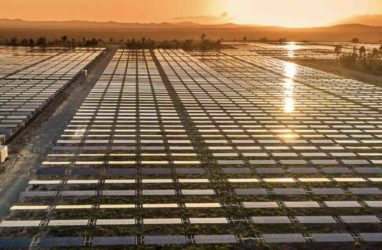Perhaps the worst publication in Australia (and that’s saying something), Crikey, today lauds the arrival of Canadian PM Mark Carney. “Prime Minister Carney’s visit is an opportunity to further strengthen cooperation on investment, economic security and critical minerals, defence, and links between our institutions and communities,” Prime Minister Anthony Albanese said last month. Carney’s visit comes
Ross Elliott of The Pulse wrote an outstanding article about the administrative bloat that has enveloped Australia’s planning industry. Elliott notes that lawyers he has spoken with told him “they didn’t really know how many [planning-related] pages of rules and regulations were now in force—just that it would be so many as to be impossible
Nominations were declared yesterday afternoon for South Australia’s 47 House of Assembly seats as well as the Legislative Council contest.
There was a very large increase in candidates compared to the last election, and well in excess of the previous record.
388 candidates have nominated for the House of Assembly. This is a big increase on the 240 who ran in 2022. The previous record was 302 candidates in 2002, so that record has been well and truly beaten. There are 8.3 candidates per seat on average.
DXY is rising faster than an Iranian SAM. And why not. The Iran war is bad for all energy importers, including Europe, Japan, and China. It is good for US shale. AUD held up, but for how long? Oil and gold to the moon. AI metals not so much. Mining parabolas intact. EM not so
The post Australian dollar safe haven shines appeared first on MacroBusiness.
 Andrew Forrest's huge wind plans to power his Pilbara mining operations have undergone a "substantial redesign," proposing to halve its footprint, while shooting for the same 2.1 GW of capacity.
Andrew Forrest's huge wind plans to power his Pilbara mining operations have undergone a "substantial redesign," proposing to halve its footprint, while shooting for the same 2.1 GW of capacity.
Apparently, it takes at least two debilitating energy wars to convince the Albanese government to do something about the East Coast gas export cartel. Perhaps the number is infinite. Let us recall that MB contacted the incoming Albanese government in its first week in office and told it straight up that if it did not
The post Here comes another war profiteering gas shock appeared first on MacroBusiness.

Welcome to our panel on media ethics – a topic with which probably all of us have dealt with at one time or another, be it as working journalists or as ombuds. As to codes of practice regarding standards and ethics, you may be familiar with the code of the US-Society of Professional Journalists (SPJ). It states: ”Public enlightenment is the forerunner of justice and the foundation of democracy.
 Two solar farms with four-hour big batteries have taken a major step closer to delivery with the selection of local construction firm as contractor.
Two solar farms with four-hour big batteries have taken a major step closer to delivery with the selection of local construction firm as contractor.
The post Construction firm locked in to deliver two big solar and battery projects in the Sunshine State appeared first on Renew Economy.
Since U.S. and Israeli strikes on Iran kicked off on Saturday, the focus of the world has once again turned to the Middle East, as concerns continue to build over how this chapter of the region’s history will draw to a close. While there is a great deal of uncertainty about the road ahead for
The post Iran is vital to China and the world appeared first on MacroBusiness.

The Israel/US decapitation strike on Saturday hit the Ayatollah Khamenei when he was reportedly meeting with senior Iranian military officers. Was the Israeli hit a lucky coincidence or was this a deliberately planned trap? Did the US send a message to Khamenei for a meeting to discuss a US proposal in preparation for the planned Monday meeting — now cancelled — in Geneva?

Rubio, Hegseth, Caine, Ratcliffe to Brief All Congress Members on Iran Tuesday - Speaker
US House Speaker Mike Johnson said on Monday that he arranged a classified briefing on March 3 for all members of Congress with senior administration officials amid the US-Israeli military campaign against Iran.

Western governments, including Australia and New Zealand, have backed US and Israeli strikes on Iran. But the decision risks economic catastrophe, regional escalation and the further erosion of international law.
Over the COVID-19 pandemic and the years immediately following, there was a strong migration from Victoria to Queensland. According to the most recent Australian Bureau of Statistics (ABS) population figures, Victoria had experienced two consecutive quarters of net inward migration from other states—the first inflows since the pandemic began. While the net inflow was small—only
The Green Party is becoming everything you might have wanted Labour to be.
By George Monbiot, published in the Guardian 25th February 2026
NB: This article was published before the by-election it refers to. The Greens won by a mile.

Saudi Crown Prince Mohammed bin Salman made multiple private phone calls to US President Donald Trump last month pushing for a strike on Iran despite favouring diplomacy publicly, the Washington Post reported.